- Home
- Robert Jordan
Conan the Victorious
Conan the Victorious Read online
Two horsemen pounded out of the night, bent low in their saddles, seeming to race shoulder to shoulder to see which would lance Conan first. Snarling, the Cimmerian leaped to the side, away from the long-bladed lances. The two riders tried to wheel on him together, but he closed with them, thrusting at the closer of them. His blade struck a metal plate in quilted brigantine, then slid off and between the plates. The movements of his attack were continuous. Even as his steel pierced ribs and heart, he was scrambling onto the dying man’s horse, throwing both the corpse and himself against the second enemy.
Look for all these Conan books
CONAN THE DEFENDER
CONAN THE DESTROYER
CONAN THE INVINCIBLE
CONAN THE MAGNIFICENT
CONAN THE TRIUMPHANT
CONAN THE UNCONQUERED
CONAN THE VALOROUS (trade edition)
CONAN THE VICTORIOUS
CONAN THE VICTORIOUS
BY ROBERT JORDAN
A TOM DOHERTY ASSOCIATES BOOK
The author and publisher have provided this e-book to you without Digital Rights Management software (DRM) applied so that you can enjoy reading it on your personal devices. This e-book is for your personal use only. You may not print or post this e-book, or make this e-book publicly available in any way. You may not copy, reproduce or upload this e-book, other than to read it on one of your personal devices.
Copyright infringement is against the law. If you believe the copy of this e-book you are reading infringes on the author’s copyright, please notify the publisher at: us.macmillanusa.com/piracy.
CONTENTS
PROLOGUE
CHAPTER I
CHAPTER II
CHAPTER III
CHAPTER IV
CHAPTER V
CHAPTER VI
CHAPTER VII
CHAPTER VIII
CHAPTER IX
CHAPTER X
CHAPTER XI
CHAPTER XII
CHAPTER XIII
CHAPTER XIV
CHAPTER XV
CHAPTER XVI
CHAPTER XVII
CHAPTER XVIII
CHAPTER XIX
CHAPTER XX
CHAPTER XXI
CHAPTER XXII
CHAPTER XXIII
EPILOGUE
Tor Books by Robert Jordan
CONAN THE INDESTRUCTIBLE
Copyright
PROLOGUE
The Vendhyan night was preternaturally still, the air weighty and oppressive. No slightest breeze stirred, leaving the capital city of Ayodhya to swelter. The moon hung heavily in the sky like a monstrous yellow pustule, and most of the few who ventured out to see it shuddered and wished for even a single cloud to hide its sickly malevolence. There were whispers in the city that such a night, such a moon, were omens of plague, or of war, but certainly of death.
The man who called himself Naipal gave no heed to the whispers. Watching from the highest balcony of a vast palace of alabaster spires and golden domes, his by royal gift, he knew the moon was no omen of any sort. It was the stars that gave the night its promise, the passing of configurations that had blocked his way for months. He laid long, supple fingers on the long, narrow golden coffer held beneath his arm. Tonight, he thought, there would be one moment of transcendent danger, a moment when all his plans could crumble to dust. Yet there was no gain without risk, and the greater the gain, the greater the danger.
Naipal was not his true name, for in a land noted for its intrigues, those who followed his path were secretive beyond the ordinary. He was tall for a Vendhyan, and they were accounted a tall people among the nations of the East. That height gave him a presence that he deliberately diminished by wearing robes of somber hue, such as the dark gray he now wore, rather than the rainbow silks and satins affected by men of fashion. Also the shade of charcoal was his modestly small turban, with neither gem nor plume to set it off. His face was darkly handsome, seeming calm beyond the ability of any disaster to shatter, with heavy-lidded black eyes that spoke of wisdom to men and of passion to women.
Seldom did he allow himself to be seen, however, for in mystery there was power, though many knew that one called Naipal was court wizard to King Bhandarkar of Vendhya. This Naipal, it was said in Ayodhya, was a wise man, not only for his good and faithful service to the King since the strange disappearance of the former court wizard, but also for his modest lack of ambition. In a place where every man and woman brimmed with ambition and plotting, the lack was considered praiseworthy, if peculiar. But then, his sort did peculiar things. It was known, for instance, that he gave great sums to the poor, to the children of the streets. This was a source of some amusement to the nobles of the court, for they thought he did it to assume a guise of kindness. In truth he had thought long before giving the first coin. He had come from those streets and remembered well wretched nights crouched in an alley, too hungry to sleep. The truth would have showed a weakness; therefore he fostered the cynical rumors of his motives, for he allowed himself no weakness.
With a last look at the sky, Naipal left the balcony, firmly clutching the narrow coffer. Golden lamps, cunningly wrought in the shapes of birds and flowers, lit the high-ceilinged corridors of his palace. Exquisite porcelains and fragile crystal vases stood on tables of polished ebony and carven ivory. The carpets layered thickly beneath his feet in a welter of color were beyond price, and any one of the delicately-woven tapestries on the alabaster walls could have been exchanged for the daughter of a king. In public, Naipal made every effort to efface himself; in private, he reveled in all the pleasures of the senses. This night, however, after waiting so long, his eye did not touch any of the ornaments of his palace nor did he call for wine, nor musicians, nor women.
Down he went, into the depths of his palace and beyond, to chambers with walls that glowed with a faint pearlescence as though glazed by the hand of a master, chambers hewn from the bowels of the earth by his powers. Few of his servants were allowed to enter those deep-buried rooms and passages, and those few could not speak of what they did or saw for the simple lack of a tongue. The world at large did not know of those chambers, for those servants who did not descend into them, and so were allowed to keep their tongues, fearfully and wisely averted their eyes and would not so much as whisper of them on their sleeping pallets.
A downward-sloping corridor opened into a great square chamber, thirty paces on a side, with softly-gleaming canescent walls that were all of one piece, without join. Above, a pointed dome rose twenty times the height of a tall man. Centered beneath that dome was an arcane pattern in silver, buried in the near translucence of the floor and encompassing the greater part of the room. That silver graving gave off its own unholy radiance of frosty paleness. At nine precisely chosen spots on the perimeter of that figure were tripods of delicately worked gold, no higher than Naipal’s knee and placed so that each leg seemed to continue a portion of the pattern. The air seemed sharp with dire forces, and the memories of foulness done.
Incongruously, the sixth part of the length of one wall was taken by a large grille of iron bars, with a locked door, also of iron, set in it. Near the strange latticework a table of polished rosewood held the implements and ingredients he would need this night, all arranged on black velvet as a gem merchant might display his wares. A large flat box of ornately carved ivory stood atop faceted crystal legs at one end of the velvet. The place of honor on that table, though, was held by a small, finely crafted ebony chest.
Setting the golden coffer beside a silken cushion before which stood another golden tripod, Naipal went to the table. His hand stretched toward the small black chest, but on sudden impulse he raised the ivory lid instead. Carefully he brushed aside layers of blue silk, as soft as the
finest down, revealing a silvered mirror, its polished surface showing no image at all, not even a reflection of the chamber.
The mage nodded. He had expected no different, but knew he must not allow his certainties to stop him from proper precautions. This mirror was not so very unlike a scrying glass, but instead of being used to communicate or spy, it had very special properties. That silver surface would show no images save those that threatened his designs.
Once, soon after he became wizard in the court of King Bhandarkar, Mount Yimsha, abode of the dreaded Black Seers, had appeared in the mirror. It had been only curiosity at his ascension, he knew. They saw no threat in him, more fools they. In a day the image was gone, and never since had anything been reflected there. Not so much as a flicker. Such was the efficacy of his planning.
With a feeling of satisfaction, Naipal covered the mirror once more and opened the ebony chest. Within was that which made his satisfaction grow. In carven hollows in the sable wood lay ten stones, smooth ovals of so inky a hue that the ebony seemed less black beside them. Nine were the size of the last joint of a man’s thumb, the last twice so large. These were the khorassani. For centuries men had died seeking them in vain, until their very existence became first part of legends, then the stuff of stories for children. Ten years it had taken Naipal to acquire them, a search filled with adventures and trials to make it fit for epics had it been known.
Reverently he placed the nine smaller khorassani, one atop each of the golden tripods that bordered the arcane figure within the floor. The tenth, the largest, he set on the tripod before the cushion. All was in readiness.
Naipal settled cross-legged onto the cushion and began to speak the words of power, commanding forces unseen. “E’las eloyhim! Maraath savinday! Khora mar! Khora mar!”
Again the words repeated, again and again unending, and the stone before him began to glow as though with fires imprisoned in its core. No illumination did it give, yet it seemed to burn with all light. Abruptly, with a hiss as of white-hot metal thrust into water, narrow streaks of fire leaped from the glowing stone, one to each of the nine khorassani surrounding the silver pattern. As suddenly as they were born, the blazing bars died, yet now all ten stones blazed with the same fury. Once more the slashing hiss sounded, and the encircling stones were linked by burning lines, while from each tripod another bar of terrible incandescence stretched both upward and downward. Within the confines of that fiery cage neither floor nor dome could any longer be seen, but only darkness stretching to infinity.
Naipal fell silent, studying his handiwork, then shouted, “Masrok, I summon you!”
A rushing came, as though all the winds of the world poured through vast caverns.
A thunderclap smote the chamber, and within the flame-barred cage there floated a huge eight-armed shape, twice as tall as any man and more, with skin like polished obsidian. Its only garb was a silver necklace from which depended three human skulls, and its body was smooth and sexless. Two of its hands held silver swords that shone with an unearthly light. Two more held spears with human skulls hanging below the points for decoration, and another grasped a needle-pointed dagger. Each weapon shared the glaucous, other-worldly glow. Large leathery ears twitched on the hairless head, and sharply slanted ruby eyes swiveled to Naipal.
Carefully the creature stretched to touch one silvery spear to the fiery bounds. A million hornets buzzed in rage, and lightnings flashed along the candent boundary, ceasing only when the spear point was withdrawn.
“Why do you still seek escape, Masrok?” Naipal demanded. “You cannot break our bargain so easily. Only lifeless matter can cross through that boundary from the outside, and nothing, not even you, can pass it from the inside. As you well know.”
“If you make foolish errors, O man, there is no need for bargains.” The booming words were pronounced stiffly around teeth that seemed designed for rending flesh, but a touch of arrogance came through. “Still, I will keep our pact.”
“Most assuredly you will, and should from gratitude if for no other reason. Did I not free you from a prison that had held you for centuries?”
“Freedom, O man? I leave that prison only when summoned to this place by you, and here I am constrained to remain until commanded by you to return once more to that same prison. For this and promises, I aid you? I sent the demons to bear away your former master so that you could rise to what you consider power as the court wizard. I shield the eyes of the Black Seers of Yimsha while you attempt that which would draw their wrath upon your head. I do these things at your command, O man, and you dare speak to me of freedom?”
“Continue to obey me,” Naipal said coldly, “and you will have your freedom entire. Refuse…” He flung open the golden coffer. From it he snatched a silvery dagger like the one the demon carried, even to the glow, and thrust it toward the demon. “When we made our pact, I demanded a token of you, and you gave me this with warnings as to the danger of its merest touch to human flesh. Did you think with a demon-weapon in my grasp I would not seek the secret of its powers? You hold human knowledge in contempt, Masrok, though it was mortal men who chained you in your adamantine prison. And in the knowledge of mere humans, in the ancient writings of human wizards, I found mention of weapons borne by demons, weapons of glowing silver, weapons that cannot miss what they strike at and slay whatever they strike. Even demons, Masrok. Even you!”
“Strike at me then,” the demon snarled. “I marched to war beside gods, and against gods, when the highest achievement of man was to turn over a rock to eat the grubs beneath. Strike!”
Smiling thinly, Naipal returned the dagger to the coffer. “You are of no use to me dead, Masrok. I simply want you aware that there is worse I can do to you than leave you in your prison. Even for a demon, imprisonment is to be preferred to death.”
The demon’s rubescent eyes fixed malevolently on the mage. “What do you wish of me this time, O man? There are limits to what I can do unless you remove the constraints on my journeying.”
“There is no need for that.” Naipal drew a deep breath; the moment of danger was at hand. “You were imprisoned to guard the tomb of King Orissa beneath the lost city of Maharashtra.”
“You have asked before, O man, and I will not tell you the location of tomb or city. I will not betray that if I am bound for all of time.”
“I know well the limits of your aid to me. Listen to my command. You will return to that tomb, Masrok, and bring to me one of the warriors buried with King Orissa. Bring me one man of the army that formed his bodyguard in death.”
For a moment Naipal thought the demon would accept the command without demur, but abruptly Masrok screamed, and as it screamed, it spun. Faster and faster it whirled until it was an ebon blur streaked with silver. No part of that blur touched the boundaries of its cage, but the hornets screamed and lightnings slashed walls of fiery lace. The chamber vibrated with the penetrating shriek and a blue-white glare filled the air.
Calm did not desert Naipal’s face, yet sweat beaded his brow. He knew well the forces contained in that barrier and the power necessary to make it cry out and flare as it did. It was almost to the point of shattering; almost to the point of unleashing Masrok. Through the thousand deaths he would die when that happened, the greatest pain would be the failure of all his grand designs.
As abruptly as the tempest had begun, it ended. Masrok stood as truly carved from obsidian, crimson eyes glaring at the wizard. “You ask betrayal!”
“A small betrayal,” Naipal said blandly, though it took all his reserves to manage it. “Not the location of the tomb. Merely a single warrior out of thousands.”
“To escape two millennia of bondage is one thing, to betray what I was set to guard is another!”
“I offer freedom, Masrok.”
“Freedom,” was all the demon said.
Naipal nodded. “Freedom, after two thousand years.”
“Two thousand years, O man? The span of a human life is but a moment’s dreamin
g to me. What are years to one such as I?”
“Two thousand years,” the mage repeated. For a long moment there was silence.
“Three others guard as I do,” Masrok said slowly. “My other selves, all of us created from the same swirl of chaos in the very instant time itself was born. Three to my one. It will take time, O man.”
By the barest margin was Naipal able to mask his exhaltation. “Do it as quickly as possible. And remember that when your service to me is done, you will have your freedom. I await your sign that the task is done. Now go, Masrok! I command it!”
Once more thunder smote the chamber, and the fiery cage stood empty.
With an unsteady hand, Naipal wiped the sweat from his brow, then hastily scrubbed it on his dark robes as though denying its existence. It was done. Another thread had been placed in a tapestry of great complexity. There were a thousand such threads, many being placed by men—and women—who had no idea of what they truly did or why, but when the pattern had finally been woven…. A small smile touched his face. When it was woven, the world would bow to Vendhya, and Vendhya, unknowing, would bow to Naipal.
CHAPTER I
From a distance the city seemed jeweled, ivory and gold beside a sea of sapphire, justifying the name of Golden Queen of the Vilayet Sea. A closer view showed why others gave Sultanapur’s byname as “the Gilded Bitch of the Vilayet.”
The broad mole-protected harbor was crowded with the ships that gave Sultanapur cause to call itself Queen to Aghrapur’s King, but for every roundship filled to the gunwales with silks from Khitai, for every galley that carried the scent of cinnamon and cloves from Vendhya, another vessel, out of Khoraf or Khawarism, reeked of stale sweat and despair, the odiferous brand of the slaver.

 Conan the Unconquered
Conan the Unconquered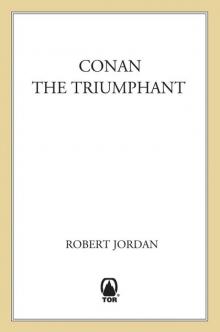 Conan the Triumphant
Conan the Triumphant The Eye of the World
The Eye of the World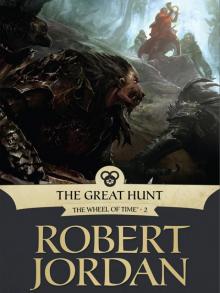 The Great Hunt
The Great Hunt Conan the Victorious
Conan the Victorious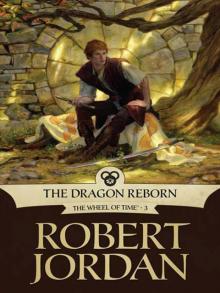 The Dragon Reborn
The Dragon Reborn The Fires of Heaven
The Fires of Heaven Winter's Heart
Winter's Heart Lord of Chaos
Lord of Chaos The Shadow Rising
The Shadow Rising Conan the Defender
Conan the Defender The Strike at Shayol Ghul
The Strike at Shayol Ghul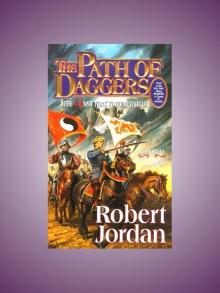 The Path of Daggers
The Path of Daggers A Memory of Light
A Memory of Light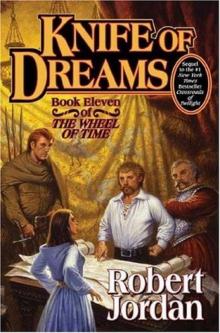 Knife of Dreams
Knife of Dreams Crossroads of Twilight
Crossroads of Twilight Conan the Invincible
Conan the Invincible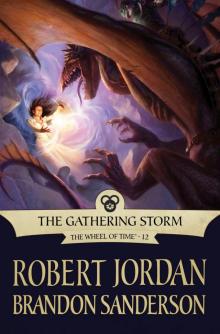 The Gathering Storm
The Gathering Storm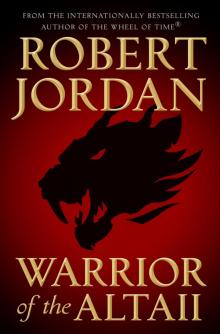 Warrior of the Altaii
Warrior of the Altaii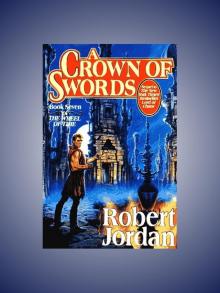 A Crown of Swords
A Crown of Swords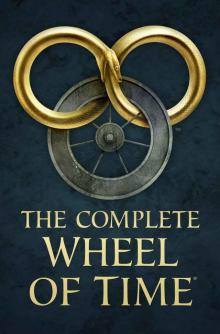 The Wheel of Time
The Wheel of Time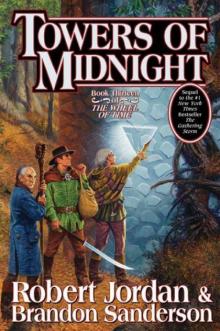 Towers of Midnight
Towers of Midnight Conan Chronicles 2
Conan Chronicles 2 Conan the Magnificent
Conan the Magnificent New Spring
New Spring What the Storm Means
What the Storm Means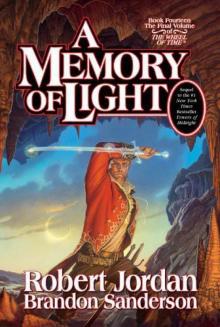 A Memory of Light twot-14
A Memory of Light twot-14 New Spring: The Novel
New Spring: The Novel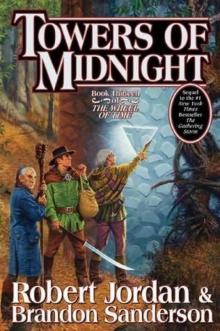 Towers of midnight wot-13
Towers of midnight wot-13 A Memory Of Light: Wheel of Time Book 14
A Memory Of Light: Wheel of Time Book 14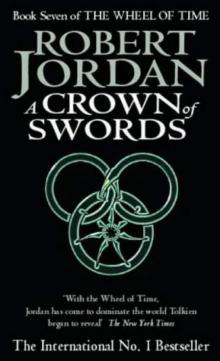 A Crown of Swords twot-7
A Crown of Swords twot-7 Lord of Chaos twot-6
Lord of Chaos twot-6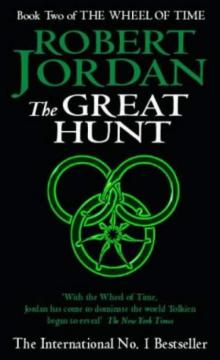 The Great Hunt twot-2
The Great Hunt twot-2 The Shadow Rising twot-4
The Shadow Rising twot-4![Wheel of Time-11] Knife of Dreams Read online](http://i1.bookreadfree.com/i1/04/03/wheel_of_time-11_knife_of_dreams_preview.jpg) Wheel of Time-11] Knife of Dreams
Wheel of Time-11] Knife of Dreams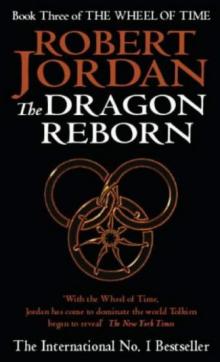 The Dragon Reborn twot-3
The Dragon Reborn twot-3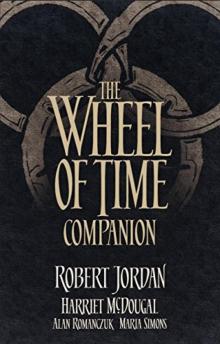 The Wheel of Time Companion
The Wheel of Time Companion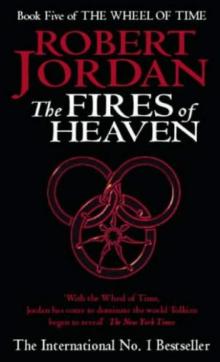 The Fires of Heaven twot-5
The Fires of Heaven twot-5 Prologue to Towers of Midnight
Prologue to Towers of Midnight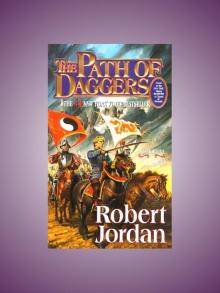 The Path of Daggers - The Wheel of Time Book 8
The Path of Daggers - The Wheel of Time Book 8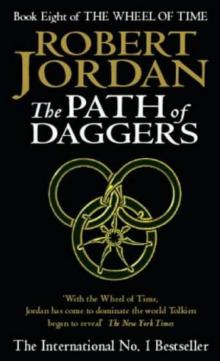 The Path of Daggers twot-8
The Path of Daggers twot-8 By Grace and Banners Fallen: Prologue to a Memory of Light
By Grace and Banners Fallen: Prologue to a Memory of Light Crossroads of Twilight twot-10
Crossroads of Twilight twot-10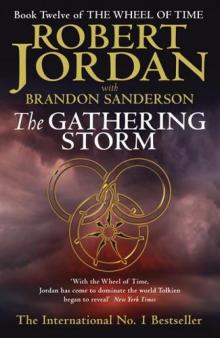 The Gathering Storm twot-12
The Gathering Storm twot-12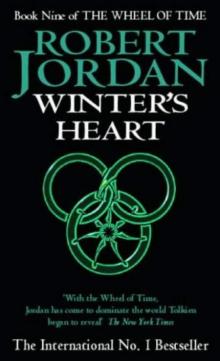 Winter's Heart twot-9
Winter's Heart twot-9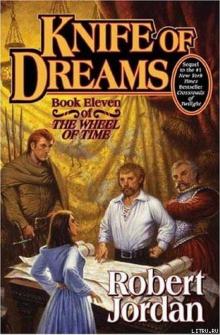 Knife of Dreams twot-11
Knife of Dreams twot-11 New Spring: The Novel (wheel of time)
New Spring: The Novel (wheel of time)